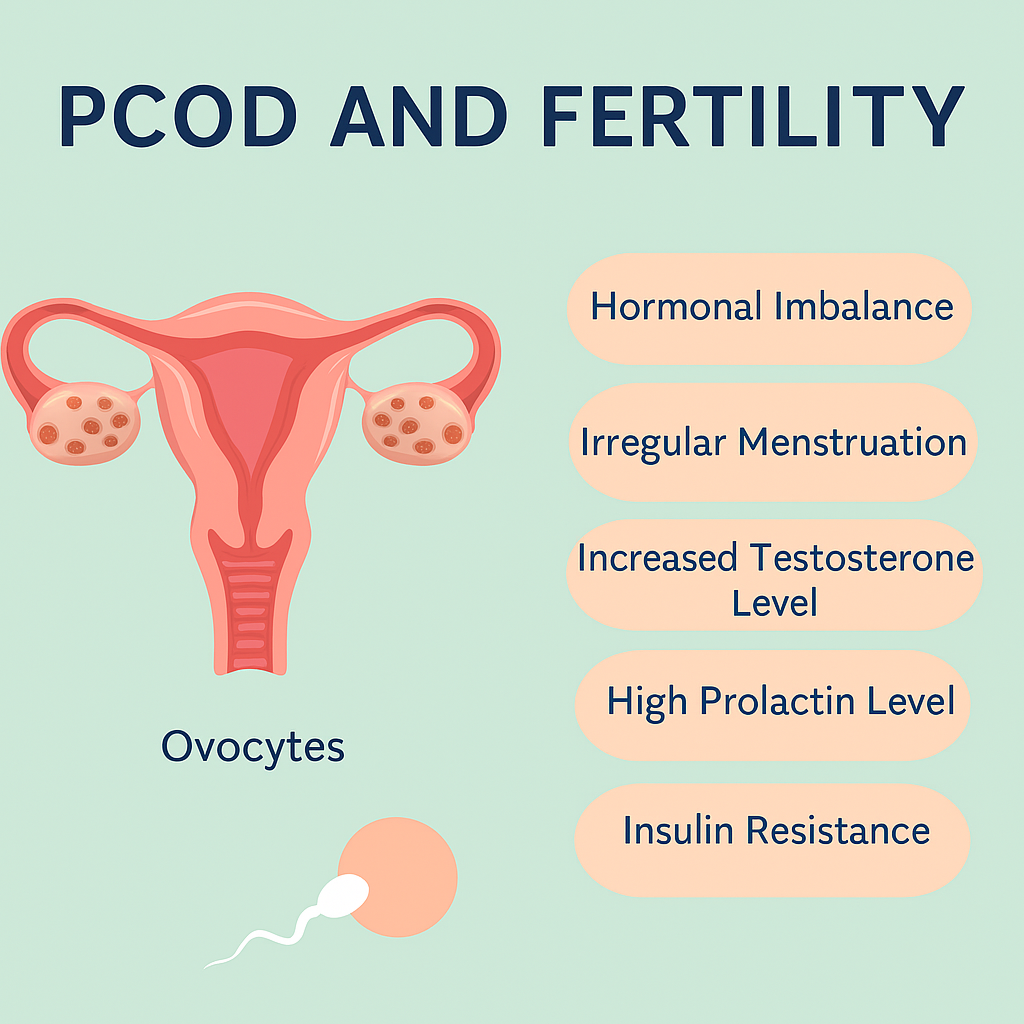Polycystic Ovarian Disease (PCOD) is a common hormonal disorder affecting millions of women of reproductive age. While PCOD can make conception challenging, it does not mean pregnancy is impossible. With the right approach, many women successfully conceive and deliver healthy babies.
Why Does PCOD Affect Fertility?
PCOD disrupts ovulation due to:
- Hormonal Imbalance: Elevated androgens interfere with follicle maturation.
- Irregular Ovulation: Eggs may not be released regularly.
- Insulin Resistance: Common in PCOD, aggravates hormonal imbalance.
- Ovarian Changes: Multiple small cysts indicate disrupted follicle development.
Can Women with PCOD Get Pregnant Naturally?
Yes, but it may take longer. Lifestyle changes like weight management, balanced diet, and regular exercise can restore ovulation in many cases. Even a 5–10% weight reduction can significantly improve fertility outcomes.
Treatment Options to Improve Fertility
A stepwise approach is recommended:
- Lifestyle Modifications
- Low-GI diet, regular exercise, stress management.
- Improves insulin sensitivity and hormonal balance.
- Ovulation Induction
- Letrozole (first-line): Higher live birth rates than Clomiphene.
- Clomiphene Citrate (CC): Effective but slightly lower success rates.
- Metformin: Often combined with CC for insulin resistance.
- Assisted Reproductive Techniques
- IUI (Intrauterine Insemination): Cumulative pregnancy rate ~39% after 3 cycles.
- IVF (In Vitro Fertilization): High oocyte yield in PCOD patients; pregnancy rates ~33–35%, similar to non-PCOD cases.
Risks During Pregnancy
Women with PCOD have a higher risk of:
- Gestational Diabetes
- Hypertension & Preeclampsia
- Preterm Birth
- Miscarriage
Close monitoring and early intervention are essential for a healthy pregnancy.
Emerging Research
- Gut Microbiome Link: Low levels of Parabacteroides Merdae may impair fertility; probiotics could become a future therapy.
- IVF Protocol Innovations: Antagonist cycles with GnRH agonist trigger and Letrozole-based frozen embryo transfers show promise in reducing complications.
Key Takeaways
- PCOD is a leading cause of anovulatory infertility, but highly treatable.
- Start with lifestyle changes, then move to medications and ART if needed.
- Regular monitoring during pregnancy is crucial to manage risks.
- New research offers hope for better outcomes through microbiome and tailored IVF protocols.

3 replies on “PCOD and Fertility: What You Need to Know”
So much good info here. Thanks!
Thank you
Thank you for these valuable insights.